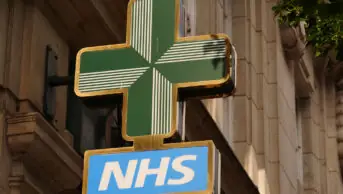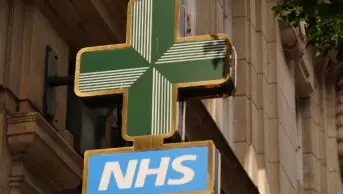
Shutterstock.com
More than four times as many pharmacies closed in the most deprived parts of England in 2020 than in the most affluent areas of the country, an analysis by The Pharmaceutical Journal has found.
The analysis, which used the UK government’s index of multiple deprivation to analyse the latest available NHS Digital data on pharmacy openings and closures, revealed that of the 202 pharmacies, in net terms, that closed their doors in 2020, 81 occurred in the 20% most deprived neighbourhoods.
Meanwhile, just 19 closed in the 20% most affluent areas in the same year. The data published on 27 November 2020 included community pharmacies that have permanently closed or were planned closures for December 2020.
Last year saw the highest number of closures on net in the past five years, up from 123 in 2019, 122 in 2018, 25 in 2017 and 37 in 2016.
These closures happened despite use of community pharmacies soaring during the pandemic, with a third more prescriptions dispensed at the height of the first lockdown in March 2020, and a third of patients reporting that they visited a pharmacy instead of their GP.
“To put it bluntly, cuts to community pharmacy budgets often mean cuts to health services for poorer people,” said Andrew Lane, chair of the National Pharmacy Association (NPA). “That’s not in the least bit compatible with the government’s levelling up agenda.”
“It is tragic to see this continuing trend play out and it’s clear that pharmacy funding must be addressed urgently,” he said.The NPA previously warned in May 2020 that thousands of pharmacies would close without additional funding to cope with COVID-19 cost pressures, while a report by Ernst & Young found that up to 85% of pharmacies in England will be in financial deficit by 2024 if the current contractual funding arrangements continue.
Under the contractual framework, funding for community pharmacies has been frozen at £2.592bn per year until 2023/2024 — an agreement that government officials knew would cause pharmacies to close.
Simon Dukes, chief executive of the Pharmaceutical Service Negotiating Committee, said the negotiator has asked the Department of Health and Social Care for additional funding, not only to cover the costs associated with COVID-19, but also to cover contractual services in 2020–2021 and 2021–2022.
“If we are not going to see an uplift to core contractual framework funding, we will have more closures without a doubt,” he told The Pharmaceutical Journal.
“That will mean more communities losing their only link to the NHS, and that will therefore widen health inequalities, which is something this government has said that it wants to focus on reducing.”
NHS England’s ‘long term plan’ promised “reductions in inequalities” when it was published in January 2019, with pharmacies to be used for “case finding” undiagnosed cardiovascular disease patients and taking on smoking cessation referrals from secondary care.
NHS England declined to comment for this article.


